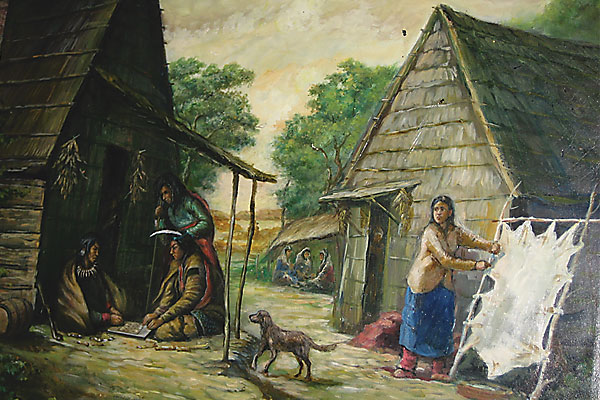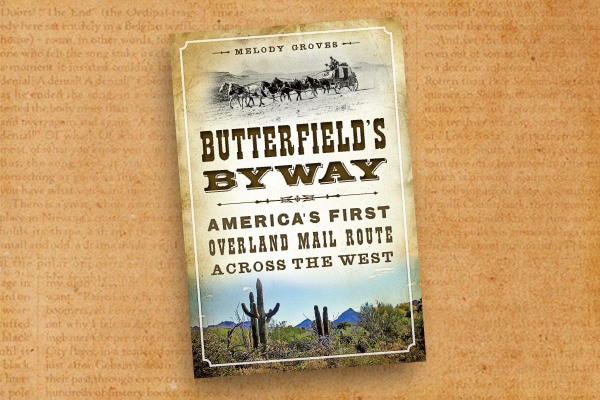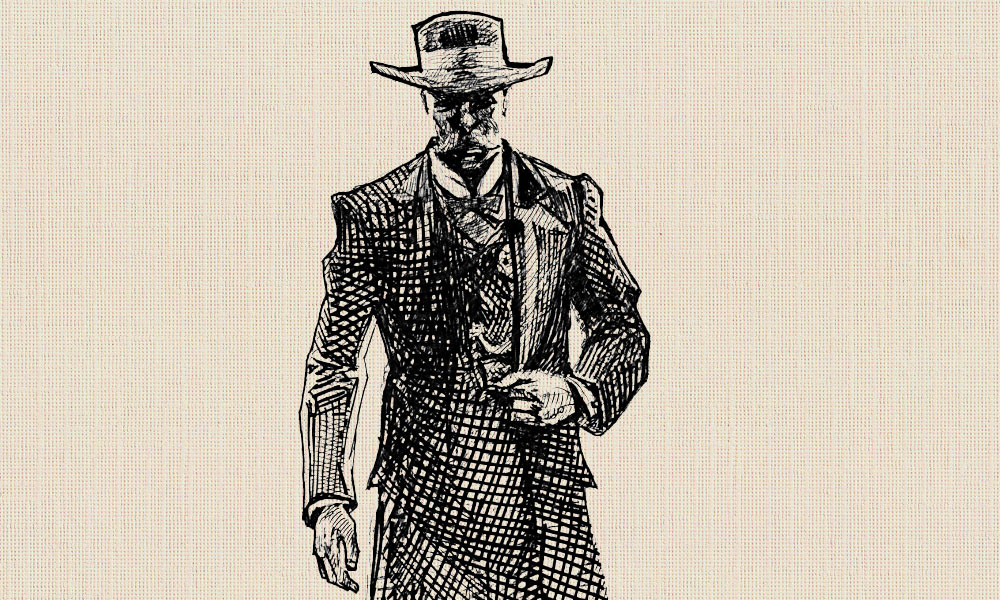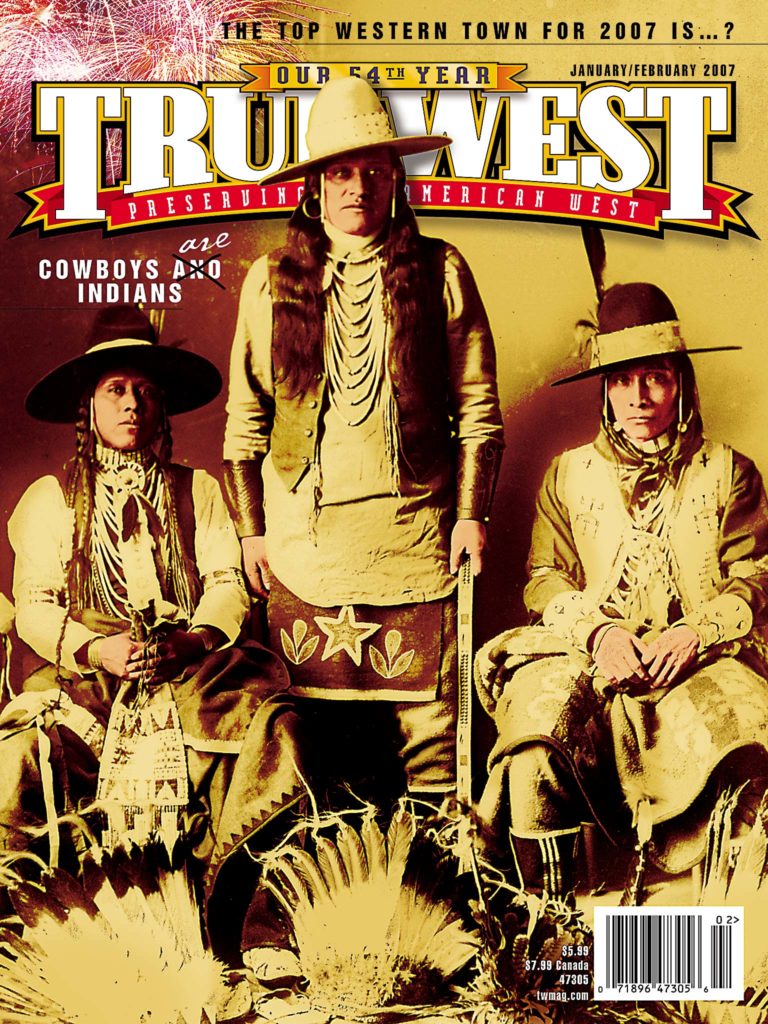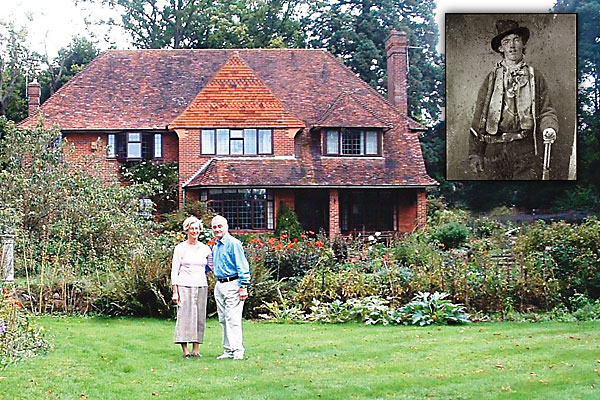
As any reader of True West knows, interest in the Old West is worldwide—people love reading about the Earps and Custer, Billy the Kid and Geronimo just as much in exotic foreign climes as they do in the American West.
Over the years, though, the most prolific output when it comes to historical research and writing has been coming from England. What we didn’t know was why, so we decided to ask some of the best-known British exponents of the art how they first got involved with documenting our history. Some of the answers may surprise you.
—The Editors
Britain’s Westerners
If you were searching for well-written research on Wild Bill Hickok, Apache scout Mickey Free and Billy the Kid, and rock-solid information on the lives and careers of Jesse and Frank James and the Youngers, Black Jack Christian and forgotten bandits like Oliver Curtis Perry, Eugene Bunch or the Farrington Gang, would the first place you’d look be England? Probably not, but that’s where you’ll find it, created by some of the best living writers on the frontier West. Notable among them are Joseph G. Rosa, the unchallenged authority on Hickok; Robert J. Wybrow, one of the leading living writers on Jesse James and his era; Jeff Burton, renowned outlaw and Oklahoma history researcher; Roy O’Dell, expert untangler of the lives of obscure outlaws; Allan Radbourne, a hugely respected authority on the Apache Wars; and myself, Frederick Nolan, an award-winning chronicler of Billy the Kid and the Lincoln County War.
Between us all, we have clocked up well over a quarter of a millennium’s worth of research (were you to include the works of highly-regarded British military historians such as Barry C. Johnson and Francis Taunton, and the late and much lamented Colin Taylor, a world-famous ethnologist of the Plains Indians, you could probably double that figure).
Let’s stick to the outlaw-gunfighter bunch, six of the best men in the business, all of them living on what might look to Americans as the wrong side of the Atlantic. No surprise, then, that the question these experts are most frequently asked is, how did you first get interested in the Old West? And the answer is the same in all cases: we all grew up watching Westerns, either at flea-pit cinemas or (depending on age) on TV. But whether it was When the Daltons Rode or the latest installment of Cheyenne, Wagon Train, Gunsmoke or Maverick, “Somehow we knew,” Burton says, “that however preposterous their screen personae and antics, the celluloid Kit Carson, Wild Bill, James and Younger brothers, and Buffalo Bill were named after real people, dead but deathless.”
Somehow, out of those old horse operas, the desire was born in each of us to get at the truth, the real story, rather than the Cinemascope epic. For me, the deter-mination to separate fiction from fact was born after I read and was enthralled by Walter Noble Burns’ The Saga of Billy the Kid. For Burton, it was first works by Zane Grey and then Earle R. Forrest’s Arizona’s Dark and Bloody Ground; for Roy O’Dell, an article by William B. Secrest, Sr. did it. Wybrow got his first taste of Jesse James in the works of Carl W. Breihan and Will Henry. In Joe Rosa’s case, it began with Gary Cooper in The Plainsman: “Later, of course, I managed to get closer to the subject [of Hickok] but still floundered in a mass of legend and myth. Then early in the 1950s, I began to ‘research’ and soon discovered the problems.”
Back in those faraway times before the dawning of the Internet, problems were in profusion. Like never being less than 5,000 miles away from the scenes and sources, the libraries and museums and repositories; like having to wait … and wait … for replies to hopeful airmail letters to distant—and often fledgling—historical societies. The answer to any question—even if answered immediately, and even if the answer was merely ‘no’—could take between 14 and 40 days to come back. There were no interlibrary loans and, even if you had the money, buying American books was a longwinded business involving bank drafts and government permission to send money out of the country. If you wanted newspapers, army records, microfilms, maps or photographs, there was only one way to get them: track down the appropriate folks, ask nicely and smile when they sent you the bill.
Most of all what it took to research the American West from Britain was an unusual amount of persistence and determination—which sometimes resulted, as Joe Rosa recalls, in not inconsiderable personal sacrifice. “In hindsight, I could say that my selfish pursuit of Hickok and other Western characters and events was ill-judged, for it served to severely restrict my social life (including romances!), but I am also aware that unless one is single-minded when pursuing an ambition, it rarely leads to success. What made it all worthwhile was the opportunity to meet and become accepted by the Hickok family, and to share material never seen outside family circles.”
Bob Wybrow also confesses his research over a 40-year period militated against “interest in other things and people.” “I daren’t think about how much time and money I have put into the three Rs of research, reflection and revision,” says Jeff Burton, adding “but in the end, such considerations are of small account.” I agree. There is no reward quite like the feeling you get when—sometimes after only weeks, but more often years—you find the fact, the authenticated photograph, the irreversible, undeniable truth that changes, or finally defines, history.
With a Little Help from Our Friends
Despite the many differences in the subjects we have all chosen to study and the way we present our work, one thing we all emphasize is the help, advice and encouragement we have received over the years from American friends and mentors. Oh, sure, there’ll always be the genealogist who promises to check censuses for you as soon as she receives your $100 deposit, or a relative who will happily tell you all the family stuff you want to know—the moment she gets your check—but then there are those wonderful people you encounter, the ones who love the history just as much as you do and can’t wait to share what they know with you.
The wonderful people who came into Allan Radbourne’s life were the late Dan L. Thrapp, Constance Wynn Atshuler and former Arizona Historical Society research librarian Lori Davisson, a lady to whom many of us remain indebted to this day.
Roy O’Dell names Philip J. Rasch, Richard Patterson and William B. Secrest, Sr.; I have a quartet of New Mexican historians to thank: Maurice Garland Fulton, Robert N. Mullin, William A. Keleher and, inevitably perhaps, Phil Rasch. Bob Wybrow credits Carl Breihan as an early influence and later William Settle, Marley Brant and Ted Yeatman, adding that there is “nobody who can compare with John Koblas for the sheer amount he has produced on the [Northfield] raid.”
Echoing Jeff Burton, who also calls him “the writer whose work influenced and stimulated my early aspirations more than any other,” Joe Rosa names Leland “Doc” Sonnichsen as a major influence. “He encouraged me to look at both sides of an argument and not to tell the reader what to think…. And when one actually put pen to paper, to use words that did not need a dictionary to follow.”
The Long and Winding Road
Rosa, now in his 70s, still lives—as he has done for most of his life—in Ruislip, on the outskirts of London. Formerly the manager of the communications depart-ment linked with Lloyd’s of London, Rosa says he has “slowed down in some areas but kept busy in others.” Among his projects—apart from serving as President of the English Westerners Society and his ongoing lifetime project of filling in gaps in the life and times of Wild Bill and tracking down some of the missing photographs—he is assembling a Collector’s Guide to the various versions of Colt’s Navy, Dragoon and Pocket pistols manufactured at the London armoury from 1853-56—a companion book to his earlier work on Colt’s London venture, published in 1976.
Allan Radbourne, having retired from working as an independent training advisor, lives in Somerset, where he is presently working on a book-length project that draws upon his fascinations with old movies. Then it will be “back to the Apache Wars, with more periodical papers and maybe another book or two.”
Bob Wybrow, 66, lives in Kent. Retired from an executive position with the Gallup Poll, and with 40 years or so of research into the lives and times of the James boys behind him, he has recently seen three long articles about the James-Younger gang published in the English Westerners Brand Book. He is currently working on an article about the (largely-overlooked) crimes the gang members committed in Texas, and another about the St. Genevieve, Missouri, Savings Association robbery sometimes attributed to them.
O’Dell, author of An Ear in His Pocket: The Life of Jack Slade, and at 58 the youngest of this bunch, has likewise seen much of his work, including his most recent about stagecoach robber Frank Clifford—no relation to the posseman who pursued Billy the Kid with Pat Garrett—and Captain Tom Bell, published by the English Westerners. Right now, he has several more pieces of work on little-known outlaws awaiting publication, but his pride and joy is reserved for a piece he has collaborated on with Sharon Cunningham, sharing “the true story of the Farrington gang, never told before in any detail.” Further up the line are articles on—are you ready for this?—Frank Shercliff and the Pollock Diamond robbery; Michigan and Wisconsin train and stage robber Reimund Holzhay; California stage holdup man Ike McCullom; Nevada robber “Cowboy Nell”; Harry Miller, son of the poet Joaquin Miller; and a Mississippi train robber named Barney Lewis.
As for Jeff Burton, he claims that with his “only be-all and end-all project” well and truly behind him (his massive 1995 study, Indian Territory and the United States, 1866-1906) that he really doesn’t have more to say on matters Western. Yet, from his home on the Hampshire coast, the English Westerners Society vice president remains as active as ever, with the recent publication of a short book, Constable Dodge and the Pantano Train Robbers, plus a work-in-progress tentatively titled “Western Story” and his last words (about 250,000 of them!) on Tom “Black Jack” Ketchum, now ready for publication.
And me? Well, this 75 year old has completed two books for publication in 2007: Tascosa: Its Life and Gaudy Times, a comprehensive study of the Texas Panhandle cattle town and the undeclared range war that raged around it for two bloodstained decades, and The Billy the Kid Reader, an anthology of the most significant writings about the Kid from the first dime novel in 1881 to the present day.
For all the differences in our subjects and our methods of researching them, we all share one other thing in common: we love doing what we do, we all want to go on doing it—and lending a helping hand to others just as once we were ourselves helped—for as long as there’s someone out there who wants to read the truth.
As anyone who has delved into historical research knows, the desire to learn more and get the history right is a compulsion, an obsession, almost a wildness in the blood. Better still, it comes with a marvelous payoff. Radbourne probably put it best: “Pursuing Mickey Free’s trail for decades has not provided a pennyworth of financial profit, but it has led me into such fascinating areas of history and into contact with so many interesting and generous people that I am very glad I followed it to the end. Since the publication of his story, I have found myself signing books, presenting talks and watching the book receive awards from the American Association of State and Local History, the Western History Association and Westerners International. Now, how else might an Englishman from a small town, blue collar background come to enjoy such experiences?”
It’s clear to see that—with all due respect to Paul Revere—this band of British brothers is going to keep coming. As I’ve always put it, “Thanks, America. We’ll be in touch.”
Frederick Nolan’s Tascosa: Its Life and Gaudy Times will be published in 2007 by Texas Tech University Press. He is also a recipient of WOLA’s 2005 Glenn Shirley Award for his lifetime contribution to outlaw-lawman history.


